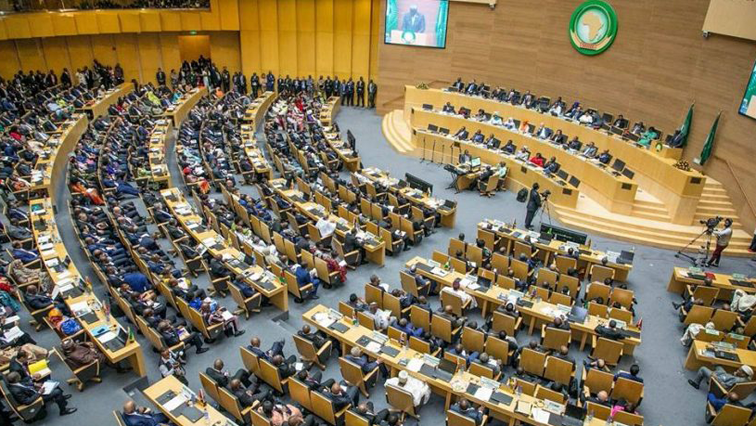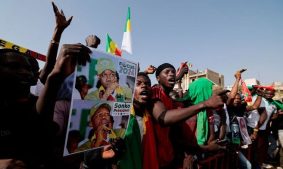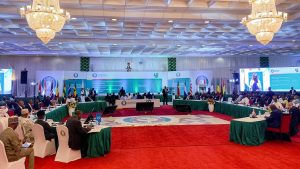There was a time when African leaders projected themselves as committed and serious about the well-being of Africans, even adopting sensible resolutions in the process. But like many other African plans, nothing has come out of them. The Sirte Declaration was a resolution adopted by the Organisation of African Unity (OAU) on 9 September 1999. This was at the fourth Extraordinary Session of the OAU Assembly of African Heads of State and Government held at Sirte, Libya. This was the declaration which gave then Presidents of Algeria Abdelaziz Bouteflika and of South Africa Thabo Mbeki a mandate to negotiate for the cancellation of the African indebtedness.
Adopting the Ezulwini Consensus in 2005, the African Union (AU) further agreed to strive for debts of highly indebted African states to be written off. Furthermore, the Heads of State and Government of Member States of the AU, meeting in the Fifth (5th) Ordinary Session of Assembly in Sirte, Great Socialist People’s Libyan Arab Jamahiriya, from 4 to 5 July 2005, reaffirmed their commitment to Ezulwini Consensus in another version of the Sirte Declaration of 2005.
One common factor in both the Consensus and the Declaration of 2005 was the permanent membership of African states on the UN Security Council and an increased number of non-permanent membership of African countries on the powerful UN body.
The current global coronavirus crisis does not present an ideal period to raise the question of Africa’s permanent membership on the Security Council. However, it is during a period like this when Africa should be reminded and scolded for dropping the ball on the UN reform topic. Had the subject of UN reform been pursued in earnest, the worrisome subject of Africa’s indebtedness could have long been resolved. While some scholars argue that Africa is not necessarily borrowing more but rather is paying much higher interests on its loans, the fact remains, Africa is financially poor. Whether its woes are as a result of harsh decisions by credit ratings or not, that is immaterial.
Meshack Mutize wrote earlier this year that, “African governments are paying interest of 5% to 16% on 10-year government bonds, compared to near zero to negative rates in Europe and America”. In such an instance, Africa has nobody else to blame but Africa itself.
Steeped in debt
For perspective purposes, Africa’s economic ‘star states’ are steeped in debt. South Africa for instance, boosts a debt close to 60% of the country’s GDP. For an economy worth R6.6 trillion, paying over R200 billion per annum in interest to service its debt, that equates to almost R7 000 per second just to see the debt through. With the country now Chair of the AU, should it be expected that Ezulwini Consensus and Sirte Declaration may find their way back to the AU agenda? Put aside the arms and military strength debate that always muddies the UN Security Council-Africa permanent representation discussion, focus on the indebtedness of African states.
The question of indebtedness comes in the wake of the global COVID-19 pandemic squeezing the last resources that may have been available for many African states. The G20 has already shot down any suggestions for a debt cancellation of the estimated US$365 billion in international debt owed by economies in Africa, instead opting for a debt holiday. Meaning that the next stop will be the IMF and World Bank. That trip will further deepen the debt crisis for Africa unless Africa develops the courage to confront borrowers as a bloc, as it had intended to do through Presidents Mbeki and Bouteflika.
However, the most important trait for Africa to master will be to negotiate as equals. After all, African states belong to these multilateral bodies, including the UN. They each have an equal vote in the world body. They must use their vote wisely. But more importantly, Africa must choose its friends carefully – those who will help it get out of debt, not procrastinate the neo-colonial agenda under the pretext of being an ally. Friends of Africa should be those who are willing to join the fight to end the indebtedness of this naturally-resourced continent. This should be the first item on the list of the AU agenda during and post the COVID-19 epoch.
In any event, countries like South Africa have weak and to a large extent non-existent border infrastructural systems. Its debt inevitably translates into servicing the populace of Zimbabwe, Mozambique and Lesotho, among others. It therefore makes political sense to approach the African debt headache en masse. That is if the current crop of African leaders are able to, among others, forget their Francophone and Anglophone prejudices that are still highly entrenched in the multilateral politics of Africa and are fuelled by former colonial masters. The foundation is there. It is the Ezulwini Consensus and the Sirte Declaration.
By Mpho Tsedu (Twitter: @MphoTsedu) CEO: Institute of Foreign Affairs






